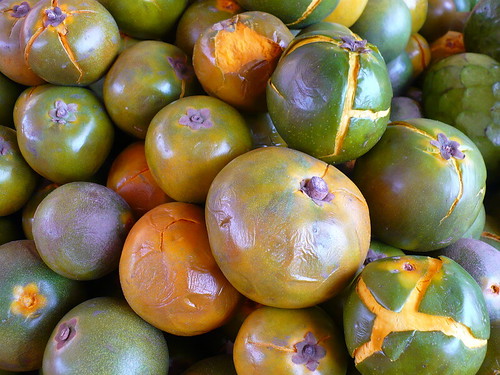Europeans now allowed to eat Lúcuma
Under the guise of health regulations, the European Union has enforced illegal trade barriers on many developing countries for years. These restrictions blocked certain foods from being imported into the EU if they hadn’t been traditionally consumed by Europeans before 1997.

Lúcuma fruits and their delicious interiors
It also conveniently protected locally produced items from facing competition from exotic imported items with similar properties (i.e. olive oil with Peruvian sacha inchi oil) or protected Caribbean nations with western-owned fruit exporters from competition with new exotic fruits.
The excuse was, that although such foreign food stuffs have been consumed for millennia for their tastes and health properties, if a European were to eat any they might drop dead. Any food considered new or strange, including the widely enjoyed lúcuma fruit, had to undergo a usually prohibitively costly study to prove it is safe to be consumed.
Peruvian producers of the delicious lúcuma fruit were unable to pay this use tariff/study fee – as are many producers and governments of developing countries. Peru alone produces dozens of export-quality exotic products with often miraculous health properties, some that are enjoyed widely in developed countries in North America and Asia.
Europeans however are denied them all – except now for lúcuma.
According to the Directorate-General for Competition, Consumer Affairs and Fraud Repression at the French Economy Ministry, Europe had been unfairly banning lúcuma for years now, as it was indeed marketed in France before 1997.
Thanks to this discovery, Peruvians, for a least one of their fruits, now have access to a large and profitable market. Could Europeans now develop a taste for Peru’s famous lúcuma flavour ice cream?
Tags: economy, european union, fruit, lucuma






![Loosing weight in Peru [Featured]](http://farm4.static.flickr.com/3263/2894149292_88b26222f4_m.jpg)

